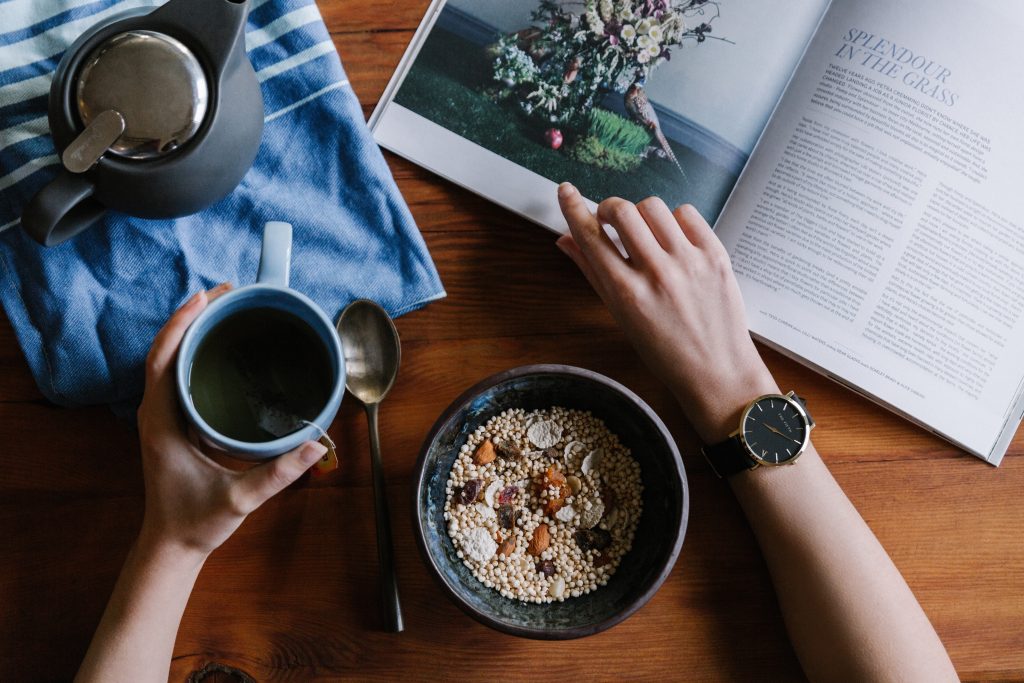Next time you’re tucking into a hearty meal, there’s every chance your food is having a negative effect on the world around you. Widespread unsustainable food production is becoming more and more of a problem as the world’s population grows, and it is obvious that something has to change. You can do your part by adopting a sustainable diet that minimises the waste you create through your day-to-day eating habits. And the best part is, this doesn’t have to be hard to achieve or deprive you of delicious food you love. Here are a few of the ways you can do it.
Reduce your food waste
The amount of food we throw away as consumers is unacceptable, with 2017 figures showing that UK households binned £13bn—or 7.3m tonnes—worth of food in 2015. It is clear that we need to do more to reduce the amount of food we waste, and there are a number of different ways to do so.
When buying food, you should plan your meals a week in advance and buy only the ingredients those meals require. This will prevent you from purchasing excess ingredients that go unused, go off and go in the bin.
Having purchased your food, you also need to be careful with how you store it. Keep fruits and vegetables separate as some fruits give off a gas called ethylene as they ripen, causing other produce to spoil faster. Store milk in glass bottles as they seal it more efficiently. And don’t wash your fruit before you put it in the fridge, as the added moisture can lead to mould forming. Other tips to reduce household food waste include preparing perishable foods soon after shopping, using your freezer as often as you can to preserve your food, and utilising leftovers to make other meals.
Buy low-waste food
On top of the food that consumers throw away, there is a deplorable amount of food that goes to waste before it even reaches the supermarkets. According to a survey conducted by environmental charity Feedback, a selection of fruit and vegetable farmers throw away around 16% of their crop every year. This is enough to provide 250,000 people with their recommended five portions of fruit and vegetables a day for a year.
Shockingly, this is mostly done to meet cosmetic specifications, with some farmers reporting that 40% of their crop was rejected by supermarkets for being the wrong shape or size. With such high levels of waste in the production stage, buying low-waste food that is not thrown away for these reasons is a great way to make your diet more sustainable.
One example of a low-waste product is the nutritionally complete powdered food Huel. Because the shape, size and variations in colour of Huel’s ingredients are not relevant in its production, they are never rejected for cosmetic reasons. In this way, Huel’s production process is a huge improvement on the traditional one. In addition, as founder Julian Hearn recently stated, the beauty of Huel’s powdered product is that as there’s no liquid, bacteria can’t survive, giving it a long shelf life. This again succeeds in reducing the waste created by the product, this time by consumers themselves.
Alternatively, some supermarkets now sell ‘wonky’ fruit and vegetables that many retailers would still reject for not meeting cosmetic standards. Morrison’s has recently pledged to increase their ‘‘wonky fruit” range by 50% this year, after launching it in 2015.
Go vegan
Meat and dairy production’s negative impact on the environment is well documented. According to the most recent statistics released by FAO in 2013, livestock is responsible for 14.5% of the world’s emissions. Livestock also uses up an inordinate amount of resources; for instance, the standard meat-heavy American diet requires a staggering 4,200 gallons of water each day (for animals’ drinking water, irrigation of crops, cooking, etc.).
It is for these reasons that reducing our meat and dairy consumption is an essential way adopt a sustainable lifestyle. Making the effort to go vegan, or at the very least do so part-time, can make a world of difference.
Vegan food can be just as delicious as non-vegan food, and plant-based alternatives are more readily available than they ever have been, so there’s no need to be worried that switching to a vegan diet will be difficult. Whilst some people are able to adopt a vegan diet rapidly, you may want to take your time and try out what works best for you.
Instead of eating vegan exclusively, try to work plant-based alternatives into your diet once or twice a week to begin with. Some alterations—like replacing cow’s milk with almond or soya milk—are very easy to make. Swapping in powdered food products like Huel is again a great option; as the brand not only reduce waste but are also 100% vegan.
With the world’s resources becoming increasingly depleted by our unsustainable eating habits, there is a more pressing need than there ever has been for us to adopt sustainable diets. Fortunately, changes like these can help each and every one of us make a difference.



